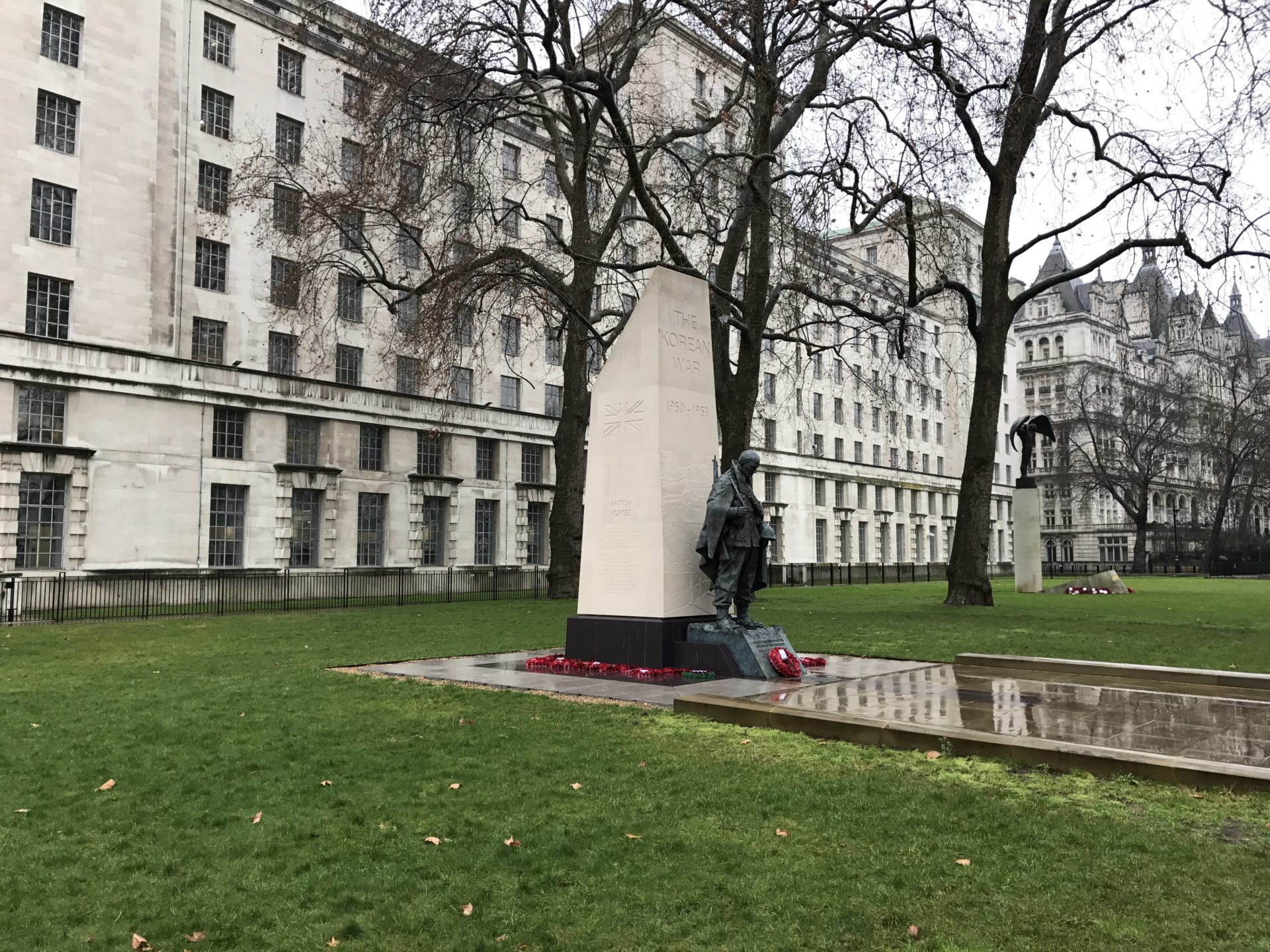UK London (4)
>> Richard Davie, member of the British Korean War Veterans Association. I served in Korea 1953, and I initially was posted there. I went over on a fast ship which only took 4 weeks, and when it arrived, the First US Division, Infantry Division was playing the band as we arrived in Pusan. I posted up to headquarters at the Royal Artillery, and after 3 weeks there, I was attached to the First Field Artillery Observation Battalion, United States Army, where I was sending map preferences of the Chinese guns back to headquarters. And we had six-figure map preferences or possibly eight-figure occasionally so that they could be fired upon as kind of bombardment. Questions?
>> Well, so what do you think is the British participation ... the significance of the British participation?
>> It was more or less made a direct line between Pyongyang and Seoul where the division was at the time I was there, and we had ... The last biggest battle was at the Hook, in fact, has been said that that would be the last battle of any ... with any two great armies fighting each other that the world has ever seen, the last Battle of the Hook, the Third Battle.
>> When was that?
>> That would be, ooh, right about June, May-June time 1953. After truce was signed, I went back to HQRA for a while, and then I was sent to a unit where we did all the paperwork for the prisoners of war as they were released.
>> Whoa, can you explain that? No one has ever told me about the POW process.
>> No, well, it was just our little unit. Basically because we were drawn in from several places into HQ, I think they were wondering what to do with us, so they sent us down to the center Canadian hospital unit, and all the British POWs who came through, we took down details of them, who they were, the Army number and messages for them to send home, which we wrote down, and these were coded messages because the only long-distance writing in those days was Morse code. So it was turned into code, then switched to be recoded, retranslated when it got headed back to this country.
>> And what did you do in the process?
>> Well, I was taking down the names and the addresses and everything for them, all the paperwork.
>> Have you been back to Korea?
>> Yes, went back in 2001.
>> Hmm.
>> And it's amazing, the difference.
>> Explain a little bit.
>> Well, everything is so modern and things so industrious and so going ahead with everything. My grandson went over on the UN Peace Camp last year, and as a result, he's very keen to go again, and he's just going to start a course at university in Seoul in March this year.
>> That's cool. So what do you think of the Korean people?
>> Oh, they're lovely. They're so hospitable.
>> We're very grateful, that's why, grateful for your service, grateful to the country and all the other United Nations service that fought, and again hopefully there will be peace on the peninsula.
>> Yeah.
